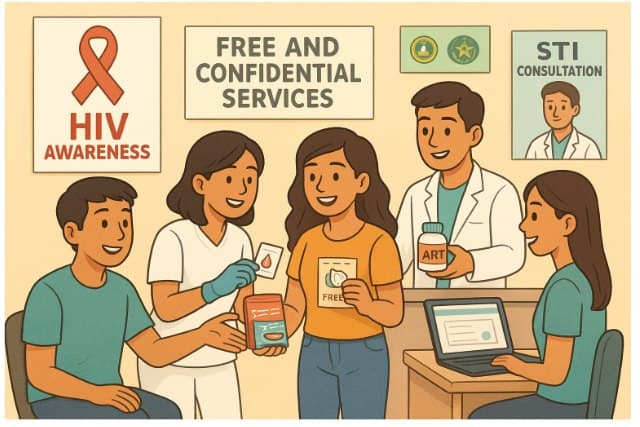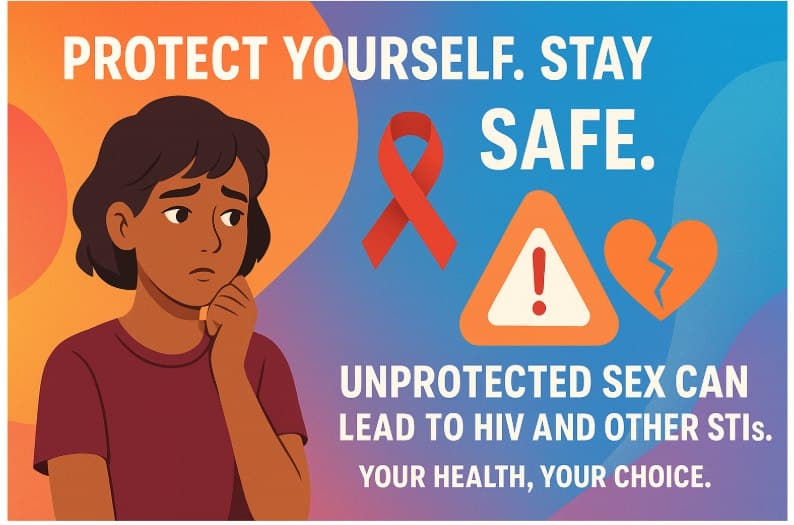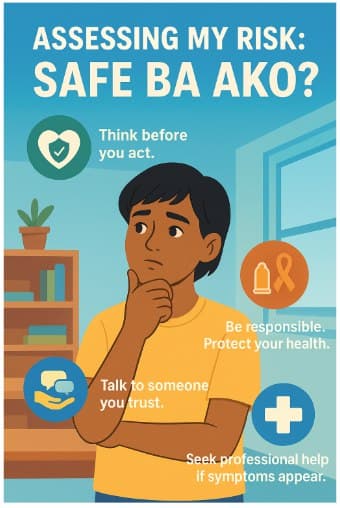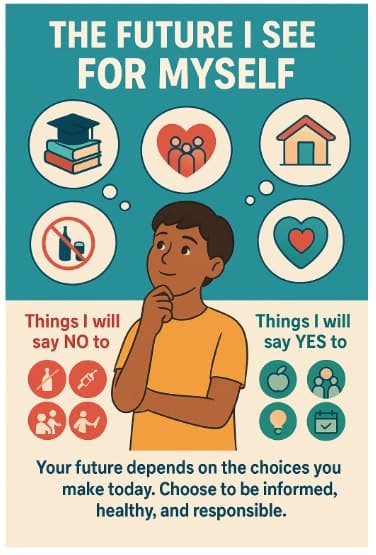Topic 4: Stigma & Advocacy
Understanding rights, reducing stigma, and accessing free health services
Reducing Stigma
Stigma and discrimination can affect people living with HIV. Advocacy, education, and community support are key to reducing stigma and promoting acceptance.
Free Services You Can Avail
The Philippine government and partner organizations provide free and confidential services for people seeking information, testing, and treatment for HIV and other STIs.
Available services include:

HIV Testing Services (HTS)
The only way to know for sure if you have HIV is through testing. You can get free HIV testing at:
Social Hygiene Clinics (SHC)
Government hospitals
Private clinics offering HIV testing
Testing is especially encouraged for:
- •Pregnant women
- •People with STI
- •People with tuberculosis
- •Anyone engaging in unprotected sex or high-risk activities
Steps in HIV Testing
Pre-test Counseling
You'll meet privately with a DOH-trained counselor who will:
- •Assess your risk for HIV
- •Explain HIV transmission and prevention
- •Discuss the testing process and benefits
- •Talk about possible results
Informed Consent
Before testing, you'll sign a consent form confirming that you:
- •Understand the testing process and benefits
- •Are voluntarily undergoing the test

Understanding Risk: HIV & STI
What is "Risk"?
Risk is the possibility that something bad will happen.
👉 In terms of HIV and STI, risk means the possibility of a person getting infected with HIV or another sexually transmitted infection.
Why Understanding Risk Matters
Unprotected sex and risky behaviors can lead to serious health problems. If left untreated:
- •HIV can cause life-threatening infections and even death.
- •STIs can cause pain, discomfort, and long-term complications.
Being aware of your actions and making safe choices helps prevent these consequences.
Assessing My Risk: "Safe ba ako?"
This self-assessment helps you reflect on your actions, decisions, and possible risks for HIV or STI. There are no right or wrong answers — the goal is to help you understand your situation and make safer choices.
If you ever feel unsure or need guidance, you can always talk to a trusted adult, teacher, or health professional.

1. Am I ready to have sex?
Before engaging in sexual activity, it's important to understand the possible risks and responsibilities that come with it.
If you're not ready, that's okay. You don't have to rush — wait until you are emotionally and physically ready.
To protect yourself from HIV and STI:
- 1.Be faithful to your partner.
- 2.Practice correct and consistent condom use.
2. Sexual Activity and Condom Use
Ask yourself:
- •Have you had any sexual activity (oral, vaginal, or anal sex)?
- •If yes, did you or your partner use a condom?
Remember:
- ✓"Abstinence" or no sex at all protects you completely.
- ✓Correct and consistent condom use helps prevent HIV and STI.
- ✗Irregular or no condom use increases risk.
3. Alcohol and Drug Use
Have you ever used prohibited drugs or gotten drunk or tipsy because of alcohol?
If yes, did you have sex while high or drunk?
Why it matters: Using drugs or alcohol can affect your judgment and lead to unsafe decisions, such as unprotected sex. Be responsible — avoid substances that can put your health at risk.
4. Forced Sex or Consent Issues
Sex should always be a personal choice. No one should ever be forced to have sex.
Examples of forced sex include:
- •Being pressured or threatened by a partner
- •
If you or someone you know has experienced this:
Seek help from a parent, teacher, guidance counselor, or trusted adult.
Remember: No means no. Your body, your choice.
5. Possible STI Symptoms
Be aware of signs that may indicate an infection:
"Tulo"
unusual discharge from genitals or rectum
"Sugat"
sores in genitals or anus
"Kulugo"
warts in genitals or anus
If you notice any of these, don't ignore them. You should:
- •Tell your parents or a trusted adult
- •Consult a doctor or Social Hygiene Clinic (SHC) for medical help
Only a doctor can confirm if you have an STI and provide proper treatment.
The Future I See for Myself
Everyone dreams of a happy, healthy, and successful future. To reach that future, you need to make smart choices today — choices that protect your health, your relationships, and your dreams.

My Future Plans
Take a moment to imagine your life at different ages. What do you want to achieve?
At age 20
(Example: finish school, find a stable job, stay healthy)
Your dreams and goals...
At age 25
(Example: start a career, help my family, travel, be independent)
Your dreams and goals...
At age 30
(Example: have a family, build a home, continue growing personally and professionally)
Your dreams and goals...
Three Things I Will Say "NO" To
Decide which actions or habits you'll avoid because they can put your future at risk.
Add your own:
1. What will you say NO to?
2. What will you say NO to?
3. What will you say NO to?
Three Things I Will Say "YES" To
Commit to things that help you grow and stay healthy.
Add your own:
1. What will you say YES to?
2. What will you say YES to?
3. What will you say YES to?
Reflection: What's Next?
Now that you've identified your goals and choices, ask yourself:
What will I do next to reach my dream?
Write your action plan here...
Some good next steps:
- ✓Do research about HIV and sexual health
- ✓Talk to your parents, teachers, or trusted adults
- ✓Visit a health center or Social Hygiene Clinic (SHC) for advice
- ✓Help others make informed, safe choices
Key Message
"Your future depends on the choices you make today. Choose to be informed, healthy, and responsible. Protect your dreams — protect yourself."